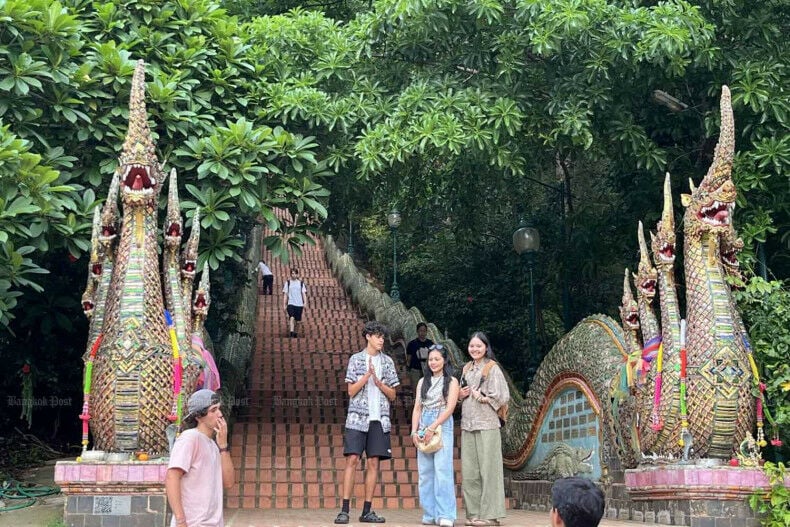Tourism industry demands action amid 300-baht fee controversy

Thailand’s private sector is urging the government to address the supply side of tourism after Prime Minister Srettha Thavisin announced the suspension of a proposed 300-baht fee for foreign tourists. This fee was intended to establish a tourism development fund.
Chamnan Srisawat, President of the Tourism Council of Thailand (TCT) stated that The government’s performance over the past eight months would be rated 10 out of 10 for stimulating tourism demand, mainly attributed to visa policies.
“But for more critical problems related to Thai tourism, such as inferior supply development, we’re not able to give them any score as nothing has been done to help resolve the problem.”
At the opening of the northern tourism cluster in Chiang Mai, the 62 year old Thai PM said there is currently no plan to implement the tourism fee. Instead, the government aims to attract more tourists and encourage higher spending, believing the benefits from increased spending would surpass those from the fee.
Without the tourism tax, there is no dedicated financial resource for tourism development. PM Srettha said the government would allocate a budget to the Tourism and Sports Ministry for project proposals to boost tourism income. However, Chamnan expressed concerns about improving the overall tourist experience and spending without proper plans.
“It’s regrettable to hear that the tourism fund won’t be set up due to the postponement of the fee collection. We don’t have any concerns with regard to volume, but poor tourism experiences and a lack of attractiveness are the key points.”
Chamnan stressed that without a development fund, Thailand would struggle to enhance its tourism infrastructure or create new attractions, unlike countries such as China and Vietnam, which continually develop new tourism sites. He mentioned that revenue from tourism in the first five months of the year had only reached 830 billion baht, far short of the government’s 3.5 trillion baht target for the end of 2024.
Chamnan proposed initiating five major man-made projects across five regions to generate tourism revenue, especially in second-tier provinces. He suggested that tour operators could integrate these new destinations into their packages, attracting more tourists in the future.
Federation of Thai Tourism Associations
The Federation of Thai Tourism Associations (FETTA) also called for urgent tourism development in a forthcoming white paper. Sisdivachr Cheewarattanaporn, president of the Association of Thai Travel Agents, highlighted the need for a balanced policy that prioritises supply development and demand stimulation.
FETTA urged the government to establish new key performance indicators (KPIs) focusing on supply improvement, including safety standards and environmental impacts. Sisdivachr also recommended a tourism carrier capacity blueprint to guide development.
Sisdivachr concluded that once the tourism fee is collected, 100 baht per tourist should be dedicated to sustainable tourism development and crisis management, addressing Thailand’s low score on the Travel & Tourism Development Index compared to other Southeast Asian countries, reported Bangkok Post.
Latest Thailand News
Follow The Thaiger on Google News:


























